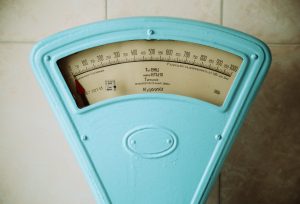One of the basic tenets of personal finance is that you need to do one thing and one thing only if you really want to get ahead. Surprisingly this one thing is both simple and, in some ways, very challenging. All of the tips and tactics are great, but if you only manage to achieve this one thing, you succeed. What is this magical, mystical unicorn, you may ask?
It’s simply living within your means.
If you’ve been around the personal finance space or read a few blogs, you’ve probably heard this fantastic term. I think instinctively, we all get it, but I want to step back and define this, so we’re all on the same page. This is partially because everyone’s circumstances are different, and when I say living within your means, pardon the pun, it means different things to different people.
Taking a very simple view, ‘Living within your means’ = spending less money than you bring in. That’s it, that’s all! That is how I define it, and that definition really does hold water and provides flexibility. The complexities arise when you start looking into the specifics of each situation. If you’re a really high earning doctor living in an affluent city in the US making a million dollars a year, you might look wealthy and very well off, but if you’re spending 1.1 million dollars a year to maintain that lifestyle. You are not living within your means, and you will eventually have a problem.
Contrast that with a farmer on a small farm in Iowa, who makes a modest income but has no issues setting aside some money each year for savings and investments. The farmer is comfortably living within their means. Both are legitimate and possible, but they look very different from each other. Living within your means translates to you have more income than expenditures, period.
Simple yet difficult
The concept may be simple, but there are a great many people that struggle with it in many ways. Our consumer-based society doesn’t help the situation where the latest and greatest is always available and is highly desired. I’ve struggled with this over the years because spending money is easy. There are literally countless people that will happily line up to take your hard-earned money away from you.
Spending can be addictive, its far sexier to eat out at nice restaurants and go for beers with your buddies than to brown-bag your lunch to save the $10. The spending isn’t an issue if you have extra money, but if you’re using credit to keep up with the proverbial Jones’, it will catch up with you.
The interest trap!
Day to day living costs money. You have to keep the lights on, put food on the table, not to mention the many other necessities. If you spend on credit, you can end up with ever-increasing interest payments that can make it extremely difficult to stay on budget and live within your means. This is the trap I fell into, and it took me a long time to get out. Paying tomorrow for purchases you make today can be very risky.
Many people find it hard to live within their means because they don’t have a clue where they spend their money. If you’re in this situation, you need to start with this information before proceeding anywhere (I have a 3-part series on expense tracking – Part 1, Part 2, Part3). Unless you are really frugal and were simply brought up to not spend, living within your means takes some actual effort. It doesn’t mean it has to be a monumental undertaking, but you need to know what goes in and out. Making sure you always have more money coming in than out is what you are looking to achieve.
Benefits of Living within your means
Surprisingly obvious benefits to living with your means you :
- actually save money
- aren’t really reliant on debt to make ends meet
- have a sense of what is going on in your financial world
- can plan for the future (you can actually invest)
- have less stress and anxiety around money.
Why is it hard? I’ve already mentioned it – because spending is easy, and this requires effort. We’re lazy, and the credit card companies know this all too well. Spend, spend, spend, and when the cash runs out, you can always lean on the credit card or the payday loan to spend some more.
The challenge is that spending becomes habitual. We’ve all heard of the ‘latte factor’ where the cost of the daily latte can add up to a mountain of money over your lifetime. The reality is that it is true, but not quite the point here. That daily latte is a habit you innocently formed and continued for long enough that you simply do it automatically. Before people start whining, “its just a latte…”. Did you wake up one day and realize, “I’m 19 now! I should be getting a 5$ latte in the morning every day on my way to [insert activity]”, you didn’t. The whole habit of drinking that coffee developed over time. I’m not here to argue the merits of your morning caffeine drink (I occasionally like my latte too), but to point out the habitual nature of a lot of spending. You can quickly get to a point where you pick up your morning coffee on your way to work, and over time you also grab a Danish. You don’t even think about it, you simply don’t register the spending. This spending can easily creep into living within your means.
The key to living within your means
Ensuring that you know where your money goes allows you to make educated choices about where and how to spend. Too many people only have a marginal sense of where their money goes. Topping that off, they’ve developed a series of bad spending habits over the years, eventually getting to a point where they are confused about why they need to go to a payday loan place to make sure the car loan doesn’t bounce.
Going back to our example of the high-income doctor, if they knew how much they were spending, they could decide to cut out the yearly Porche upgrade and the 4 expensive vacations a year and likely not notice the change in their daily life. Living within your means doesn’t need to be a prison sentence, it’s all about smart choices.
Photo by Vita Vilcina on Unsplash




Hey Matt,
Nice read per usual 🙂
It’s funny isn’t it – I totally understand what you mean but yet delayed gratification is something that has always come easy to me. I think I enjoy the looking forwards to the “treat” so much, I don’t see it as a sacrifice to wait until I can afford it. I think the key is to make sure the treat does actually arrive.
Once you’ve broken the cycle, it’s all so much easier – sounds like you guys are working hard on it – congrats!
Thanks Michelle! I agree that once you break the cycle it is a lot easier. The biggest challenge is that in our current world we get instant gratification piled on us constantly to the point that we are trained to expect it. When it does not materialize we get bored and move on; that’s a scary proposition when it comes to something like our finances and especially if you are working towards FI.